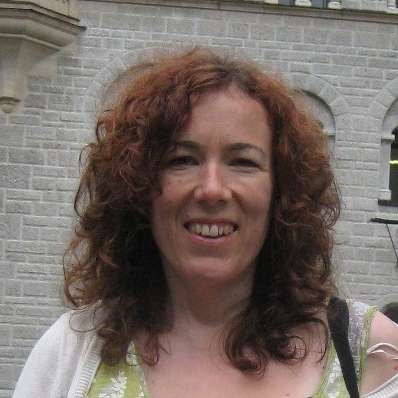A career woman, a femme fatale, a shop girl, an actor, a teacher, an idler, a biker, a priest, a bank clerk and five circus acrobats. These are not the figures that come to mind when we think of Purcell’s Fairy Queen. In a bold move aimed at creating a coherent staged performance of Purcell’s series of pageants, conductor Philip Pickett, the New London Consort and director Mauricio García Lozano have severed the Fairy Queen’s tenuous links with Shakespeare’s A Midsummer Night’s Dream and created an entirely new and captivating story.
The twelve characters, clad in drab winter clothing and carrying suitcases assemble, about to travel somewhere – “Come, let us leave this town” they sing. They arrive in “Arcadia”, introduce themselves to each other and their personalities are gradually revealed. After settling down for the night, they awake to a glorious dawn, change into brightly coloured clothes and enact a slightly embarrassed sun worship ritual. They then gradually pair off, reveal their secrets, debate the meaning of love, and leave, mostly in couples and all happy.
That this story has been constructed with only minor adjustments to the words and to the order seems nothing short of miraculous, although it would have been very difficult to follow without the character sketches and synopsis provided in the programme. Bass-baritone Michael George was particularly good playing the role of a disgraced priest, battling with drink and loss of faith. He sang the bawdy drunken poet’s aria at the beginning, but then closed the first half magically with Sleep’s aria “Hush no more, be silent all”. Alone on the stage, in fading light, among the suitcases, the chorus singing exquisitely up in the balcony, his tender pathos had the audience transfixed.
Another wonderfully dramatic moment, created from the new story, was soprano Joanne Lunn’s “Oh let me ever, ever weep”. All the couples pause in the midst of their jollity to pose for a photo, the Priest, singing the parts originally written for Hymen, mocks true love and the ice-maiden Career Woman breaks down in front of them all and laments her own failures in love. Joanne Lunn’s passionate singing and raw emotion reminded us just how well Purcell can write music for absolute anguish and heartbreak.
The five circus actors were not a background prop, they were as much part of the story as the singers, expressing their characters and thoughts through their bodies as effectively as the singers did with words and music. Lauren Hendry and Kaveh Rahnama as an on-off couple drew gasps of disbelief from the audience with their impossible acrobatics and Boldo Janchivdorj did his best to upstage tenor Ed Lyon’s vocal acrobatics by twirling and spinning an enormous metal cube before balancing it by the corner on his forehead.
Central to the new story was the hesitant romance between the Shop Girl and the Bank Clerk. Faye Newton’s crystal clear soprano was a delight to listen to – and her diction was impeccable.
The strings of the New London Consort were beautifully warm during the lyrical sections were a bit lacklustre in some of the more energetic movements, particularly at the beginning. Fortunately the brass and woodwind gave the music the necessary energy and by the end even the strings were getting into the spirit of things – Purcell’s orchestral music has to be played with flair and panache otherwise it can become boring. Special mention has to go to the dazzling recorder playing from Louise Strickland and Heather Moger, especially as they weren’t on stage for the curtain call.
Philip Pickett and his team have to be congratulated for putting on such an imaginative staging. I have to admit to being slightly sceptical when I first read the programme notes, but I was quickly won over. The infectious high spirits of the cast and their obvious commitment to their new characters drew me in, and I headed home feeling very well entertained and extremely happy.


